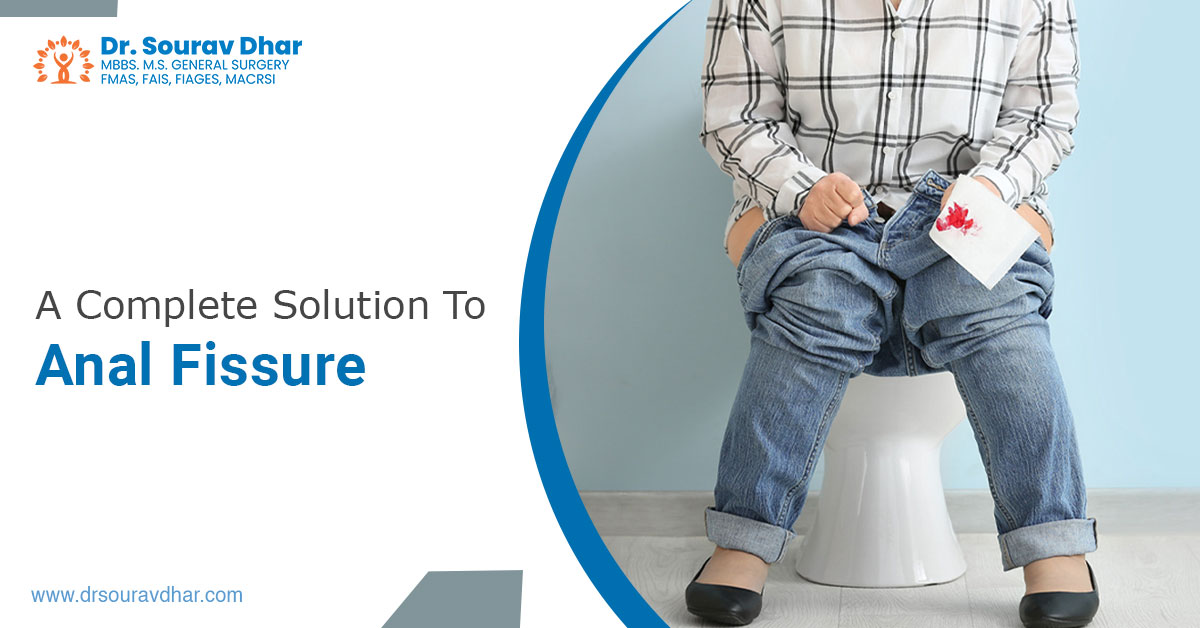Anal fissures are extremely common, especially in infants and pregnant women but the fact is most people hardly speak about the discomfort they experience because of it. They refer to the tearing of the inner lining of the anal canal that may cause pain and bleeding but the good news is that most of them self-heal with time and a little care.
What Is An Anal Fissure?
A crack or a rupture in the inner lining of the anal canal is often referred to as an anal fissure. A consultant proctologist in Siliguri explains that anal fissures may be the main cause of anal bleeding and acute pain especially while passing stools. The pain caused by anal fissures while passing hard stools is called anal trauma and can sometimes cause long-term discomfort while most of them heal quickly and by themselves.
Symptoms Of Anal Fissures
Common symptoms of anal fissure include:
- Sharp needle-like pain while pooping
- Burning and itching sensation near the anal opening
- Bloodstained stools
- Anal muscle spasms
- Lump of the skin near the anal opening
Causes Of Anal Fissures
The inner lining near the tip of the anus is delicate and thin like the one inside the intestines, causing it to strain and tear easily when stretched. The primary causes of anal fissures include:
- Acute constipation
- Infant dyschezia
- Chronic diarrhea
- Pregnancy
- Obstructed defecation syndrome
- Penetration
- Some of the secondary factors that contribute to anal fissures are:
- Surgery
- Sexually Transmitted Diseases
- Tuberculosis
- Inflammatory Bowel Disease
- Anal Cancer
- Diaper Rash
Difference Between Hemorrhoids & Anal Fissures
Both hemorrhoids and anal fissures may have similar symptoms causing itching and pain in the anal opening yet the two differ from each other. Hemorrhoids may or may not cause pain, but an anal fissure is most likely to cause pain. The pain from an anal fissure may occur in stages while the pain from a discomforting hemorrhoid is usually constant.
How Are Anal Fissures Treated?
Most of the anal fissures are temporary and do not need much healing. With time they self-heal and the pain and discomfort subsides. Sometimes doctors may prescribe a topical cream to be applied to get instant relief and for the burning sensation to cool down. If the discomfort and pain from the fissures last for several weeks then you need to consult a doctor and follow the diagnosis as suggested by him.
Some of the common medications suggested by consultant proctologist in Siliguri for anal fissures are:
- Nitroglycerin ointment
- Calcium channel blockers
- Botox injections
- Bulk laxatives
If medications fail to bring relief, then the doctors may resort to surgery as a permanent mode to initiate healing.
How To Heal Anal Fissures With Self-Care?
Adopt the following measures to help in the healing of anal fissures quickly.
- Use stool softeners to avoid constipation
- Wiping the anus with alcohol-free wet-wipes
- Apply topical ointments to speed up healing
- Taking a sitz bath 2-3 times a day
- Drinking lots of water
- Including fresh fruits and vegetables in your diet
- Avoiding spicy foods and nuts
Anal fissures are common and extremely discomforting, but with self-care and a few lifestyle changes you can avoid them and recover from pain naturally.





Comments